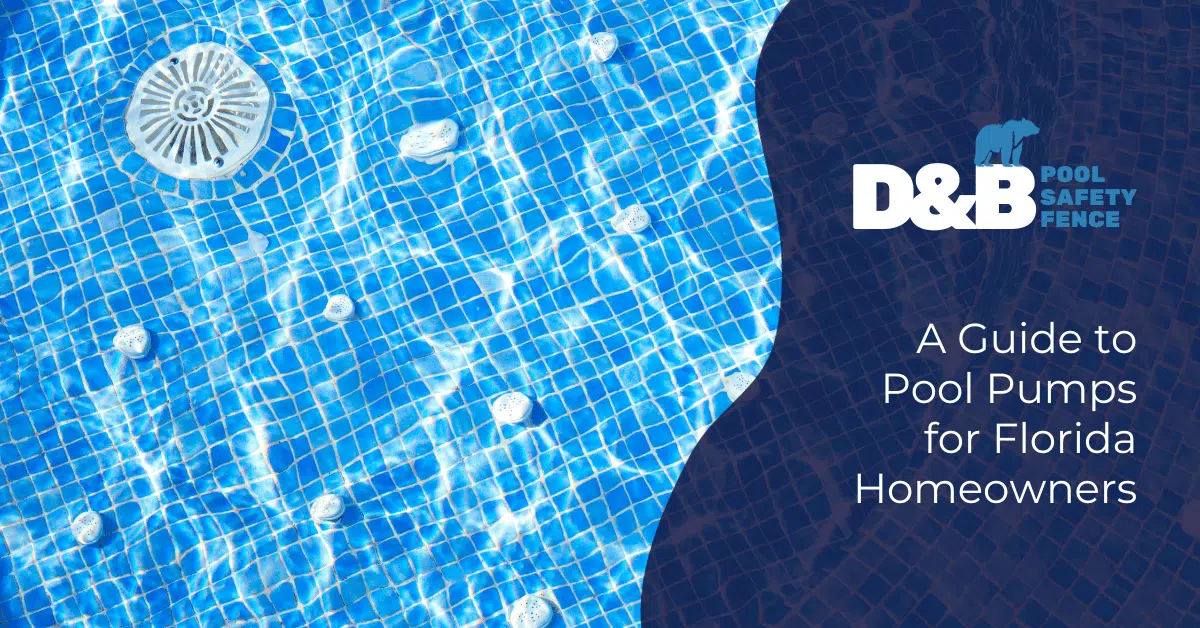Owning a pool in Florida is a luxury that many residents enjoy, especially given the state’s warm climate. To ensure your pool remains crystal clear and inviting, a properly functioning pump is essential. In this comprehensive guide, we will dive into the workings of pool pumps, maintenance tips, and the best schedules for optimizing your pool pump performance throughout the year.
How Pool Pumps Work
Pool pumps play a crucial role in maintaining water circulation, preventing stagnation, and ensuring efficient filtration. Pool pumps also help distribute pool chemicals more evenly, maintaining water balance and clarity. The primary components include the motor, impeller, and strainer basket.
Motor
The motor is the powerhouse of the pump, driving the entire system. Pool pump motors are typically electric and come in various sizes, with horsepower ratings ranging from 0.5 to 3 HP or more.
Impeller
Connected to the motor, the impeller is responsible for generating water flow by spinning rapidly. As water passes through the impeller, it creates a centrifugal force that propels the water through the pump and into the pool’s filtration system.
Strainer Basket
Before reaching the impeller, water passes through a strainer basket, which captures debris such as leaves, twigs, and other particles. Regular cleaning of the strainer basket is essential for optimal pump performance.
Pool Pump Maintenance Tips
Proper maintenance is key to extending the life of your pool pump and ensuring it operates at peak efficiency.
Regular Cleaning
Clean the strainer basket at least once a week during peak swimming season and more frequently during periods of heavy debris.
Inspect for Leaks
Regularly inspect the pump and associated plumbing for leaks. Address any leaks promptly to prevent water wastage and potential damage.
Lubrication
Some pumps have parts that require lubrication. Refer to your pump’s manual for specific guidelines on lubrication schedules and the type of lubricant to use.
Monitor Water Levels
Ensure that the water level in the pool is maintained at the proper level to prevent air from entering the pump system, which can cause damage.
Optimal Schedules for Pool Pump Operation

The ideal pump operation schedule varies depending on factors such as pool size, pump capacity, and climate. In Florida’s warm climate, a general guideline is to circulate the water for eight to twelve hours per day. Here’s a breakdown for pool pump operation schedules based on the season to help you maximize your pump’s efficiency and cost-effectiveness.
Summer Pool Pump Schedule (Peak Swimming Season)
Run the pump for ten to twelve hours per day to ensure thorough water circulation. Consider running the pump during off-peak hours, such as early morning or late evening, to save on energy costs.
Spring and Fall Schedule (Moderate Pool Usage)
With milder temperatures, the pool doesn’t require the same level of constant circulation as during the peak of summer. Reduce pump operation to eight to ten hours per day. Adjust the runtime based on pool usage and debris levels. If the pool sees more activity or collects additional debris, consider increasing the runtime.
Winter Pool Pump Schedule (Low Pool Usage)
Winter in Florida typically brings lower temperatures and decreased pool usage. Adjusting your pump schedule during this season is not only energy-efficient but also helps preserve the pool’s condition. Here’s what to consider during the winter months.
Run the Pump for 6 to 8 Hours Per Day
With reduced pool usage, a shorter pump runtime is sufficient to maintain water quality and prevent stagnation. Adjust the runtime based on weather conditions; if temperatures drop significantly, a slightly longer runtime may be necessary to prevent freezing.
Consider Reducing Pump Speed
Some pool pumps have variable speed settings. (In Florida, it is required by law that any pool pump with one or more horsepower be multi-speed.) During winter, reducing the pump speed can further conserve energy while maintaining adequate circulation. Lower pump speeds are often sufficient for water turnover during periods of low pool activity.
Learn more about winter pool maintenance in Florida.
Maintaining a well-functioning pump is essential for enjoying a clean and inviting pool throughout the year. By understanding how they work, following proper maintenance practices, and optimizing operation schedules, Florida homeowners can ensure their pool remains a refreshing oasis in the midst of the Sunshine State’s warm climate. Regular attention to your pool pump will not only enhance its longevity but also contribute to a more enjoyable and hassle-free pool ownership experience.






